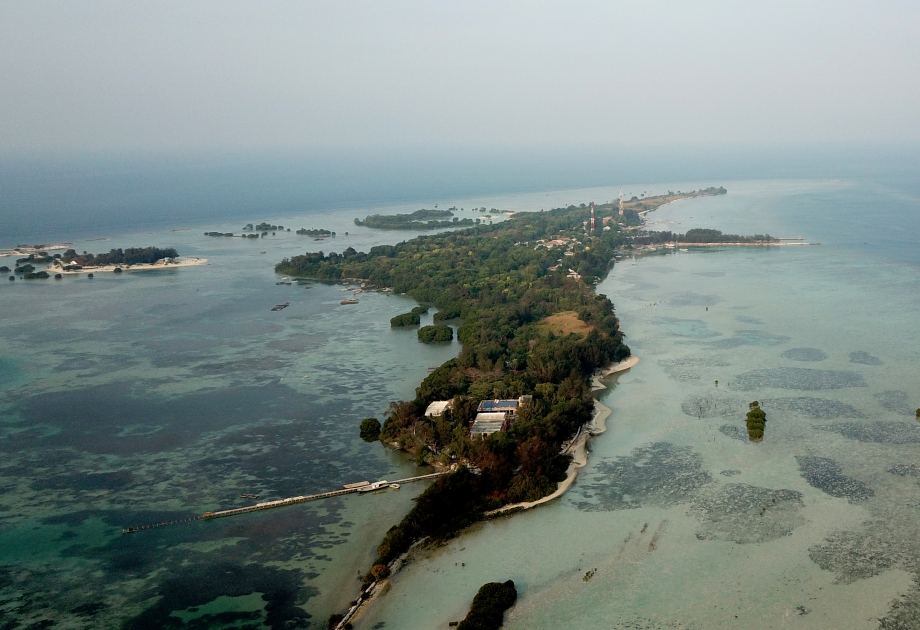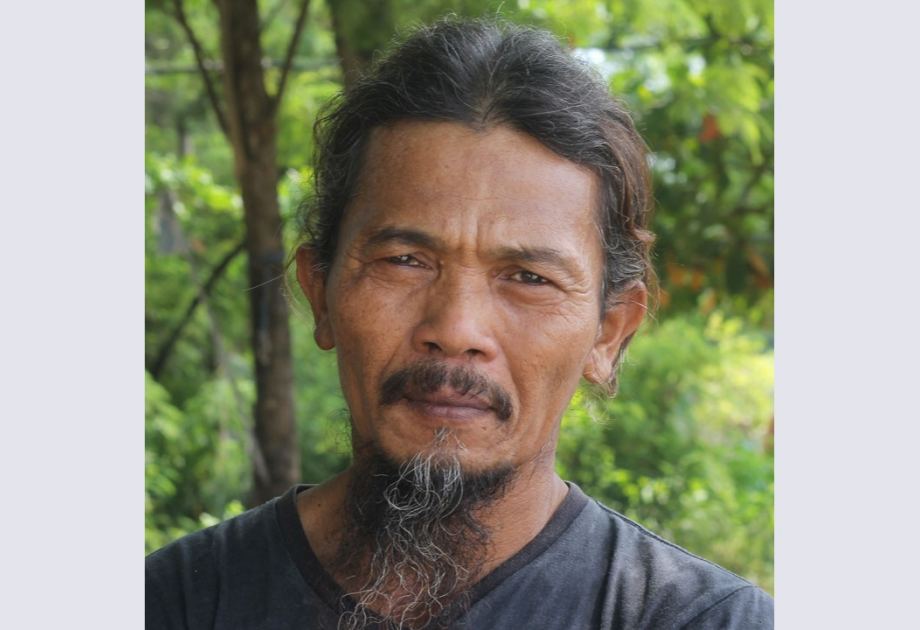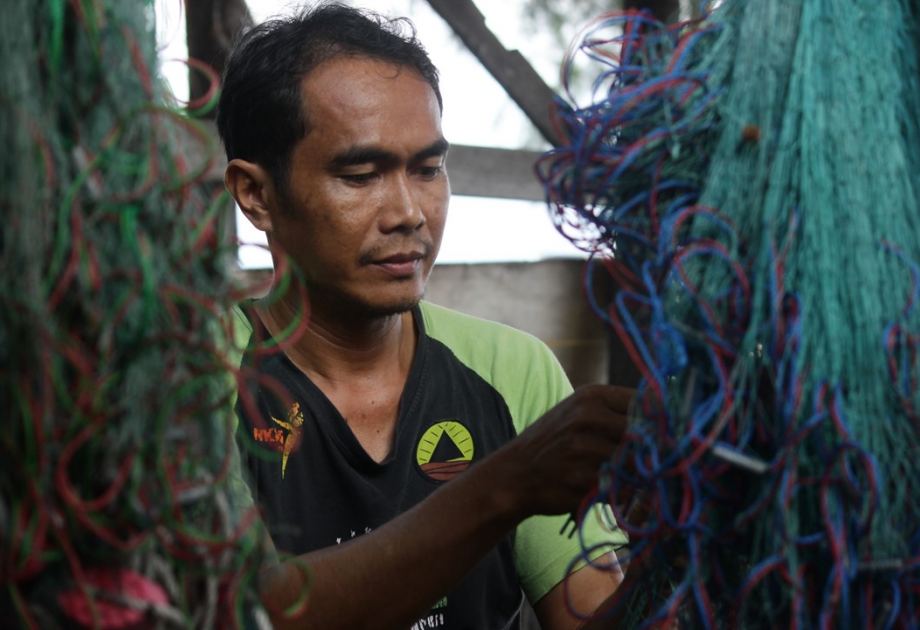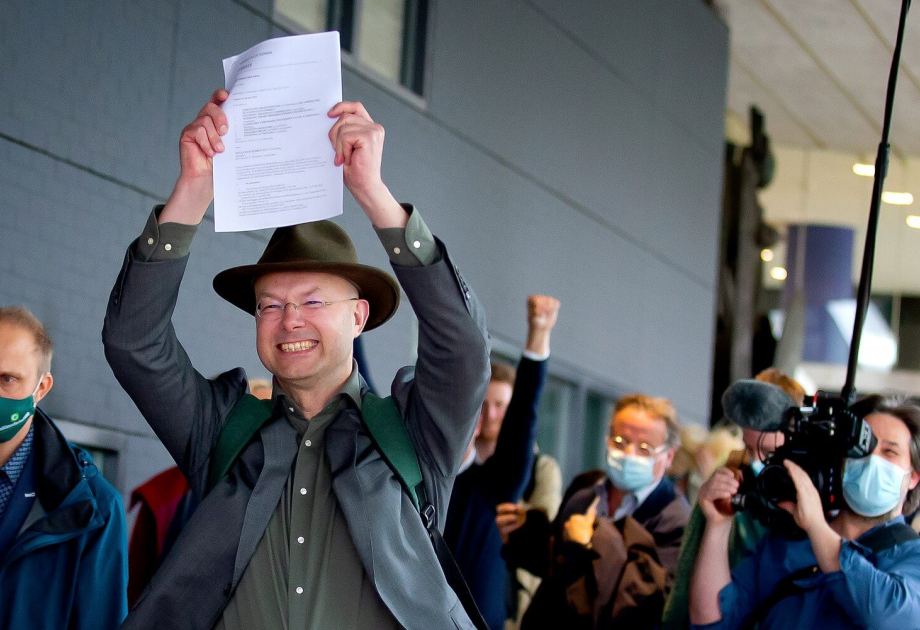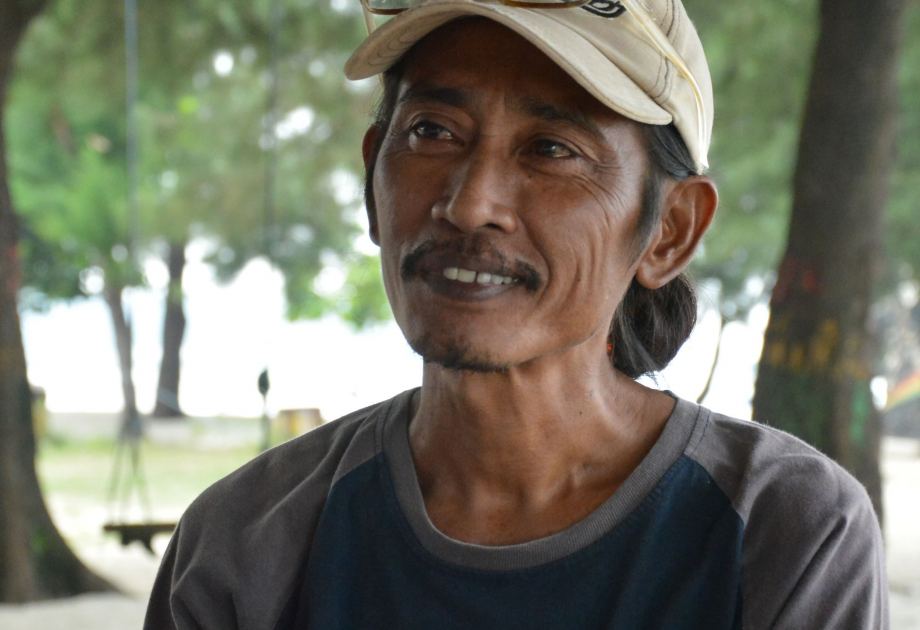

More climate cases
Saúl Luciano Lliuya is not the only one who turned to a court for climate justice. More and more people are affected by the climate crisis and are taking legal action to demand that companies and governments reduce emissions and pay for climate risks and damages so that human rights are protected. This snapshot from the London School of Economics and Political Science provides an overview of various climate lawsuits.
Indonesian Pari Islanders vs. Holcim
Climate change is causing sea levels to rise, which is destroying the livelihoods of the people on Indonesia’s Pari Island. The Swiss cement corporation Holcim bears a substantial degree of responsibility for this due to its high CO2-emissions. Four residents are now demanding justice on behalf of the island: they are taking Holcim to court in Switzerland demanding that the "carbon major" quickly reduce its CO2 emissions, compensation for damage already caused, and a contribution to the costs of protective measures against sea-level rise. The Swiss aid agency HEKS, the Indonesian environmental organisation WALHI, and the European Centre for Constitutional and Human Rights (ECCHR) support the case.
Climate Case against Shell
In 2018, the Dutch non-governmental organization Milieudefensie, together with other NGOs and over 17,000 citizens, filed a lawsuit against the oil company Shell. They demand that the company align its business plans with the goals of the Paris Climate Agreement and reduce its emissions accordingly. On May 26, 2021, the court ruled in favor of the plaintiffs. A historic victory! Shell subsequently lodged an appeal. On November 12, 2024, the court ruled that Shell does indeed have a duty to promote international climate protection. However, this obligation cannot be imposed on the company in the form of a specific percentage reduction in its direct emissions. Milieudefensie has now decided to appeal against Shell before the Supreme Court.
French NGOs against Total
In January 2020, a coalition of NGOs and local authorities filed a lawsuit against TotalEnergies in France. They are asking the corporation to take the necessary measures to comply with the Paris Agreement targets. Total produces about 1% of global emissions each year, more than the territorial emissions of France (445 million tonnes of CO2eq). This makes the group one of the 20 "carbon majors" that contribute most to global warming worldwide. The process has been delayed so far due to numerous objections made by the company. The coalition of NGOs bringing the lawsuit responded in 2023 to TotalEnergies' delaying tactics on climate protection and asked the judge to impose preliminary measures such as halting new oil and gas projects until the court reaches a decision.
Belgian farmer sues TotalEnergies
A Belgian farmer has taken TotalEnergies to a commercial court and is seeking damages for climate-related crop losses. He holds the company partly responsible for extreme weather events that have had a negative economic impact on his business. Supported by environmental organizations, he is also demanding that TotalEnergies significantly reduce its oil and gas production. Any compensation would go toward a sustainable agriculture initiative.
Flood Victims from Pakistan Sue German Corporations
43 farmers from Pakistan’s Sindh province are, for the first time, demanding compensation from the German companies RWE and Heidelberg Materials for losses caused by the 2022 flood disaster. They argue that the corporations’ high CO₂ emissions have significantly contributed to global warming, which in turn intensified the extreme rainfall in Pakistan. Supported by environmental lawyer Roda Verheyen, the plaintiffs are seeking around one million euros for destroyed crops and devastated farmland. If the companies refuse to acknowledge their responsibility, the farmers plan to file a civil lawsuit in Germany in December. The case is considered potentially precedent-setting, as it aims to hold major emitters legally accountable for concrete climate-related damages.
Philippine Communities versus Shell
67 survivors of Super Typhoon Odette (Rai) plan to file a lawsuit in the United Kingdom against the British oil giant Shell. They hold the company responsible for its role in worsening the climate crisis, which they say contributed to the 2021 disaster in the Philippines. Supported by Greenpeace Philippines and the Legal Rights and Natural Resources Center, they are demanding compensation for deaths, injuries, and destroyed homes, as well as legal measures to restrict Shell’s future emissions. The case is based on new scientific studies showing that climate change has more than doubled the likelihood of an extreme storm like Odette.
South Korean farmers sue energy company KEPCO
South Korean farmers have filed a lawsuit against the state-owned energy company KEPCO, claiming that its massive emissions from coal-fired power plants have damaged their crops through extreme weather events. They are demanding both symbolic and material compensation for the damage caused. They are also calling on KEPCO to significantly accelerate its phase-out of coal. The company was responsible for around 27% of national greenhouse gas emissions between 2011 and 2022. The lawsuit follows a ruling by the Constitutional Court that deemed previous climate policy to be insufficient. The case could send an important signal to make companies more accountable for their role in the climate crisis.
